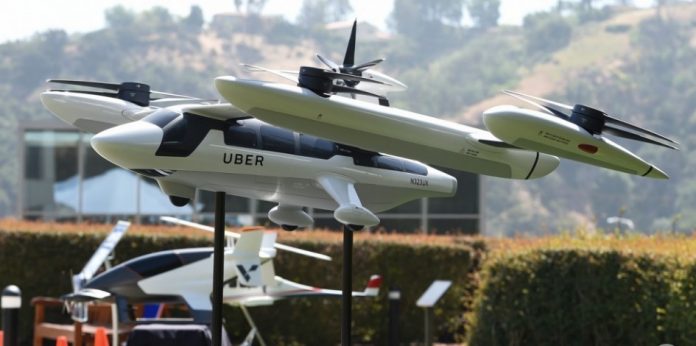LAHORE: Uber, one of the biggest names in ride-hailing services worldwide, is hoping to transform the way people commute every day. To accomplish this, the company is eyeing flying cars as the next big step as part of its ‘Uber Elevate’ premier technology platform.
What significance does this news have for Pakistanis? According to Uber’s Regional Manager for the Middle East and Africa Anthony Le Roux, the company is also considering choosing Pakistan as a potential market for flying cars, says a report in The Express Tribune.
Uber is working at making flying cars that use vertical take-off and landing technology, i.e. these vehicles won’t even need a long runway to get up in the air. It certainly seems like something straight out of The Jetsons.
That’s not the only thing Uber is investing its R&D in. It is also working on driverless cars that can make use of complex radars, algorithms, and technology that can safely transport passengers from point A to B.
Le Roux, while talking to a local media publication here, said that: “In the relative time Uber would take to launch driverless cars around the world, it was more likely, we can see flying cars much sooner in Pakistan than the complicated driverless cars.”
Why choose Pakistan for testing out flying cars? Le Roux mentions that Pakistan has rapidly accepted the services that the company has offered ever since it launched here. With 8 major Pakistani cities covered, Uber is bullish about its prospects here. The company is also going to launch its food delivery service in Pakistan soon – Uber Eats.
When asked about specifics regarding how successful the company has become in Pakistan, Uber’s management states that currently there are over 30,000 drivers in Pakistan who are using the ride-sharing app and offering their services.
Despite the issues that Uber has suffered last year in some of its international markets, Le Roux says that its Pakistani arm has not been negatively affected. This is due to the fact that Pakistan presents a relatively new market for the company. The real impact was seen in those markets where we had our presence for a much longer time. Here, people are still focused on getting cost-efficient products.
When asked about whether Uber is facing regulatory challenges whilst operating in Pakistan, Le Roux was in favor of increased talks with the authorities so that the regulatory framework can be reworked for the benefit of all stakeholders.
He believes that the frameworks should favor a light-touch and scalable licensing routine for ride-sharing companies, pointing to the fact that not all markets are equal. “We work with different transportation and tax regulators in different markets to make sure whatever structure they set up has an element of business growth. There should be a sensible tax framework that supports digital economy, promotes foreign direct investment and tech entrepreneurs in Pakistan,” said Le Roux.
If the riders or drivers feel that the taxes are too high on a ride-hailing platform, that could result in a loss of interest on the platform, Le Roux believes. It is up to the regulators as well as the ride-hailing businesses to come to a consensus regarding the value and growth that ensure a level playing field is offered to all stakeholders.
Le Roux says that Uber is looking forward to working with Pakistani regulators in this regard.





haox